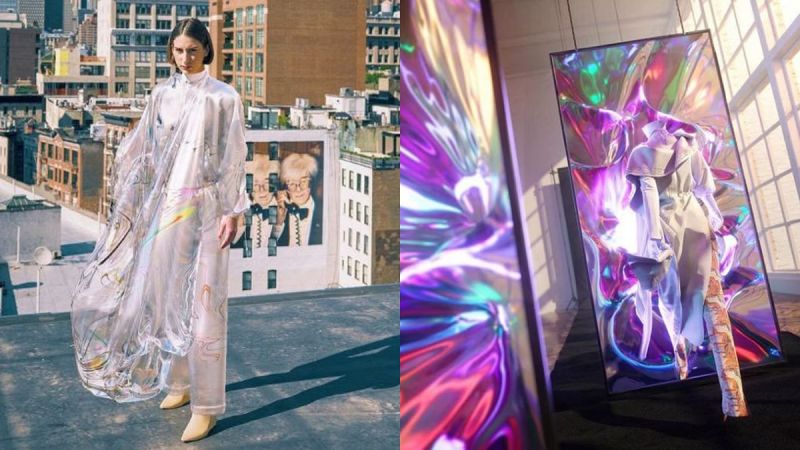
The Fabricant’s Debut ‘Couture’ Collection Promotes Digital Fashion
- Technology
- September 22, 2023
With its most recent release, digital fashion brand and studio The Fabricant is putting AI-powered fashion front and centre.
The Fabricant will introduce the “Primal Rave” couture clothing line and “Wholand,” a related virtual reality experience, on September 28 on the web3 platform Cornerstone. The actions are a part of the company’s new creative and business strategy, which is centred on producing profitable and cutting-edge digital clothing.
On September 5, the business had its “Primal Rave” collection debut on the CFDA’s Runway360 platform at New York Fashion Week. In addition to the collection, the “Wholeland” experience offers one-of-a-kind item drops and a rave-like setting where players may mingle and connect. Raising the company’s profile in order to get a presence at Paris’ Couture Fashion Week is one of the objectives of the programme. No digital fashion firms have received an invitation to participate in the French event as of yet.
Attendees will be able to interact with the digital environment and buy the items during the Cornerstone event on September 28. Each purchase includes 3D files as well as an engaging augmented reality (AR) experience with the item that can be shared on Instagram. Ready Player Me avatars, which are compatible with over 9,000 games and digital activities, can wear the clothing.
“Getting digital fashion items into multiple games, and essentially scaling distribution, has been part of our roadmap,” said The Fabricant CEO Kerry Murphy.
Through Epic Games’ Unreal Engine gaming design engine, The Fabricant’s collection was created using high-fidelity images, dynamic lighting, and real-time rendering. In order to deploy the technology, Epic Games has negotiated business agreements with both Nike and LVMH. The Fabricant also makes use of Nvidia, an AI-driven graphics rendering engine that Apple will utilise in its Vision Pro headset when it launches in 2019.
The Fabricant’s first aim after its 2022 investment round is getting additional financial and business support. Weekday and Tommy Hilfiger are now among of its digital fashion clients.
“One of our most successful projects was with Weekday [in June],” said Murphy. In April, Weekday and Monki, both of which are a part of the H&M Group, amalgamated. Both a digital and physical version of a pair of sunglasses were offered for sale, with the digital version costing €5 ($5.33) on the Fabricant website. Weekday retailers charged €130 ($138) for the physical purchase, with the digital product being an add-on. The sale of the digital item accounted for 12% of the sales of the sunglasses.
The Fabricant may be the business best suited to promote the adoption of digital fashion. The Fabricant created “Iridescence,” the first blockchain-based outfit available solely digitally. It fetched $9,500 at auction in NYC in 2019.
The Fabricant will then roll out an AI tool that combines images of models—or anyone—with images of apparel to make content development, personalisation, and the creation of digital fashion collections simpler.
“What the smartphone did for the filmmaking and photography industries, these AI tools are going to do for the fashion industry,” said Murphy. “This is going to democratize and make the creation of fashion very accessible for everybody. Anybody will be able to become a fashion model or designer.”
The Fabricant will then roll out an AI tool that combines images of models—or anyone—with images of apparel to make content development, personalisation, and the creation of digital fashion collections simpler.
“What the smartphone did for the filmmaking and photography industries, these AI tools are going to do for the fashion industry,” said Murphy. “This is going to democratize and make the creation of fashion very accessible for everybody. Anybody will be able to become a fashion model or designer.”